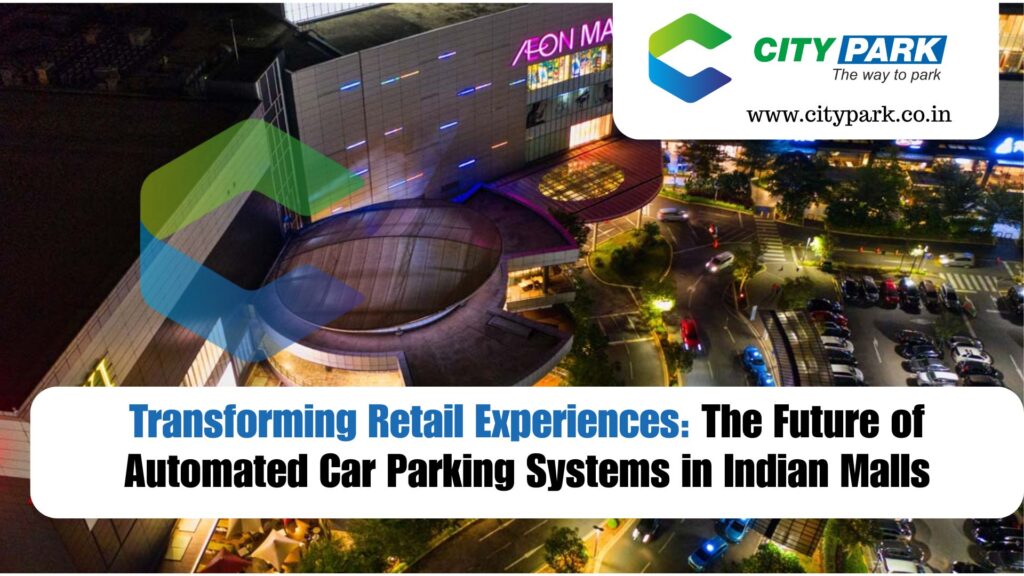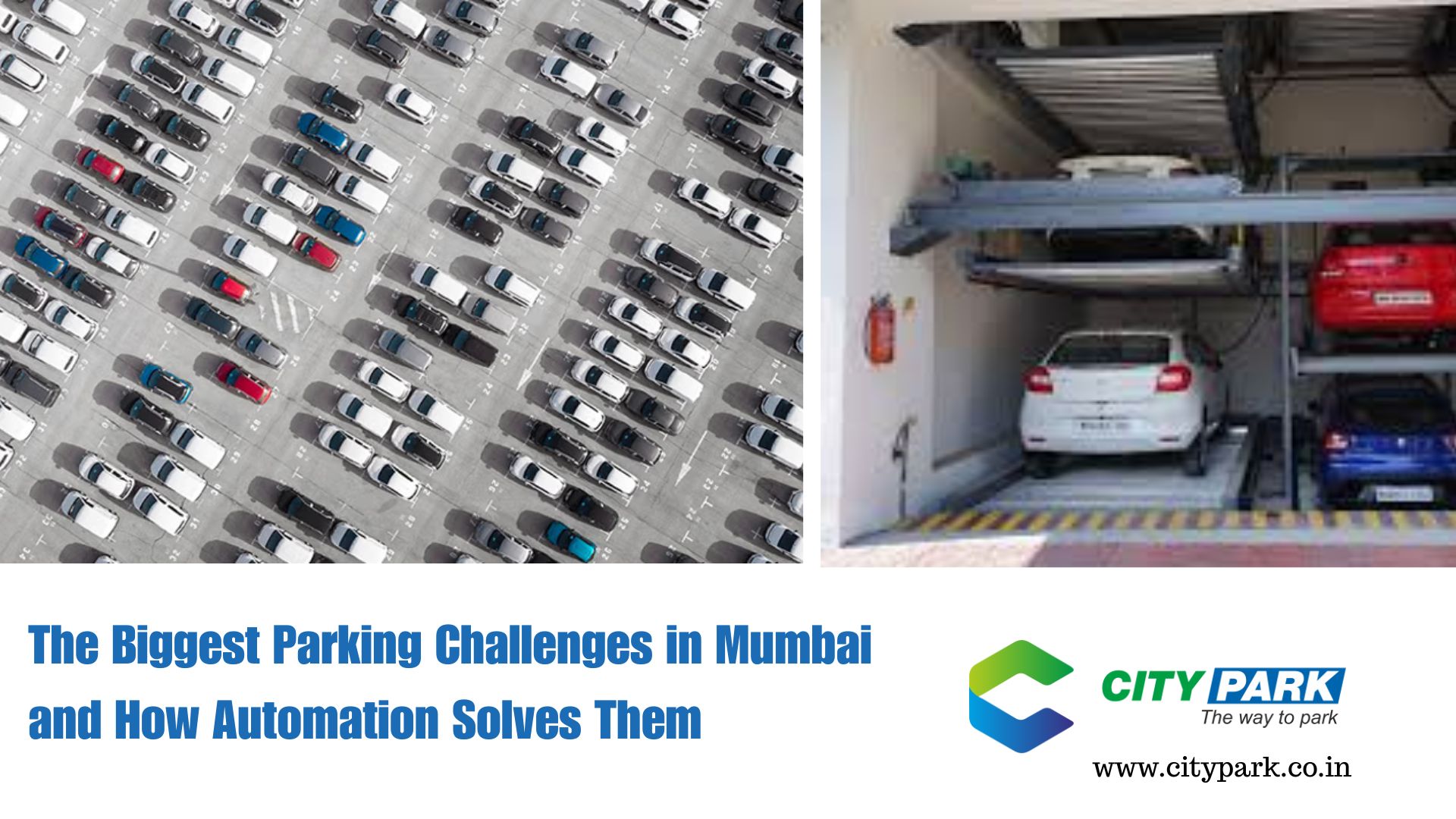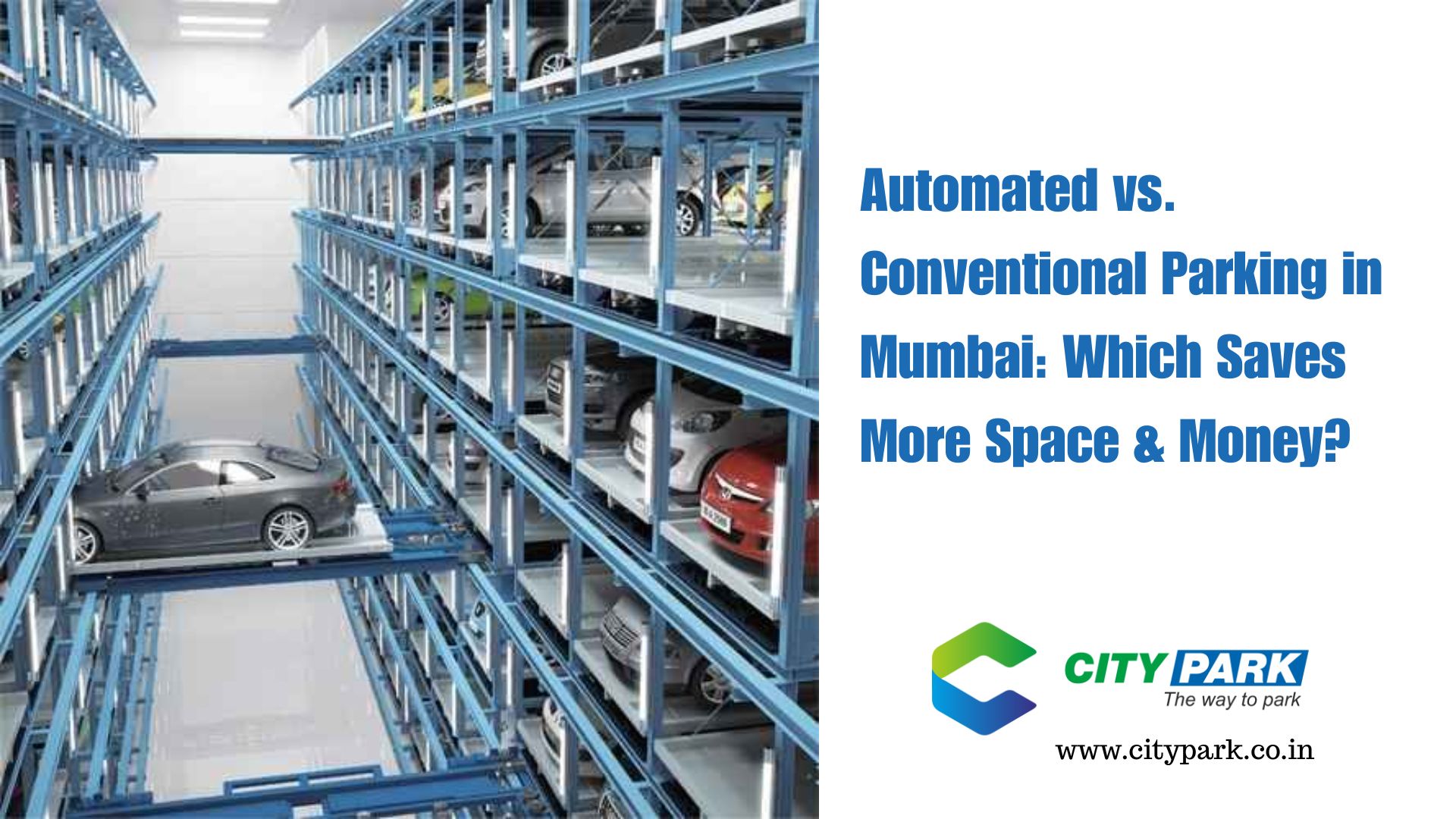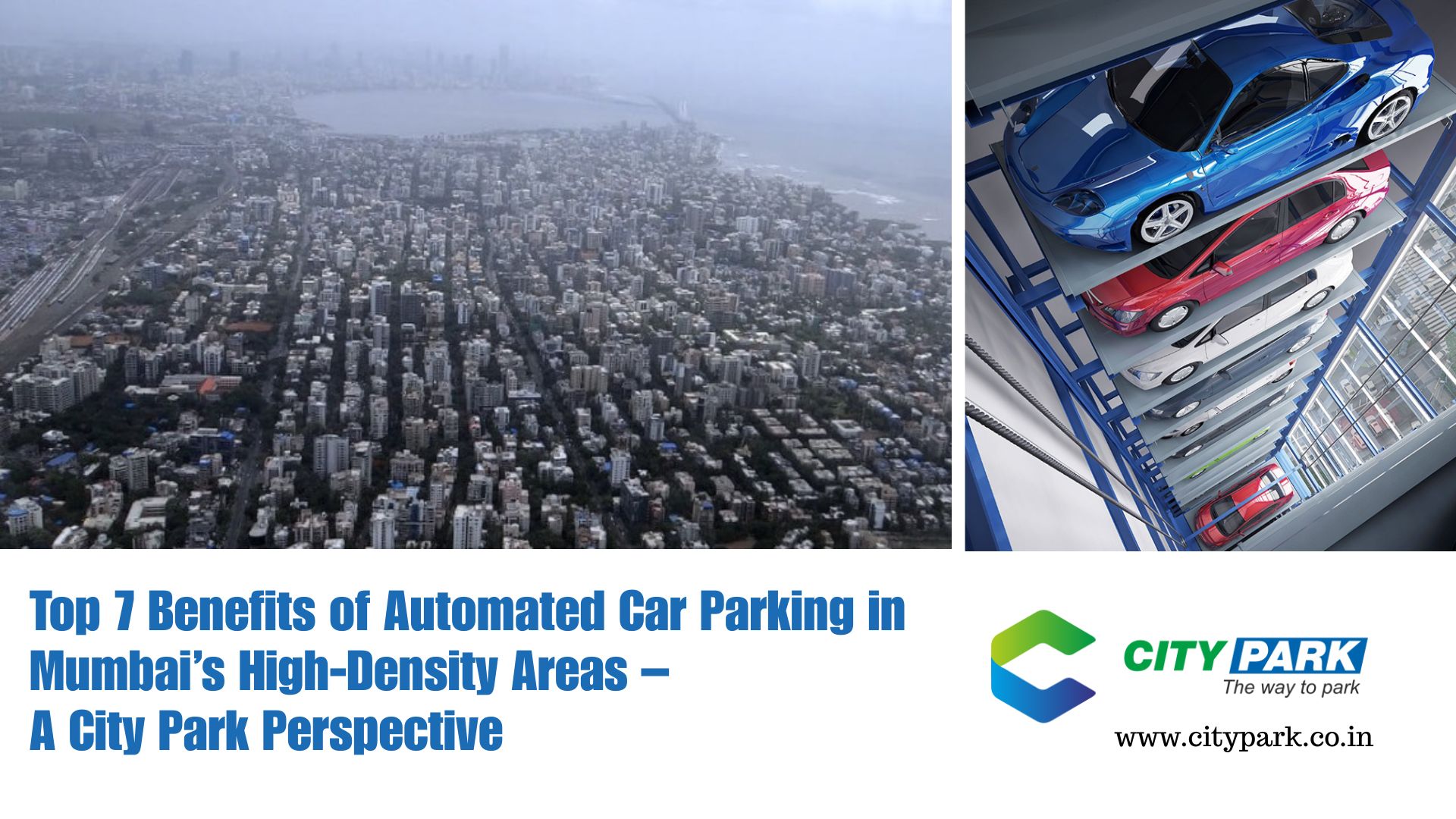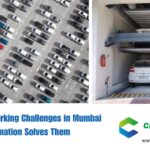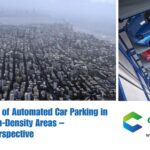Transforming Retail Experiences: The Future of Automated Car Parking Systems in Indian Malls
Shopping in India has evolved dramatically over the past decade. With the rise of mega malls, retail hubs, and lifestyle complexes, consumers today expect more than just a shopping destination — they seek seamless, convenient, and premium experiences. Yet, one of the biggest frustrations for shoppers continues to be finding a parking spot. Long queues, congested entrances, and wasted time circling for space often overshadow the excitement of shopping.
Enter Automated Car Parking Systems (APS) — a revolutionary solution reshaping India’s retail and mall infrastructure. As a leading provider of latest imported automated parking systems, City Park, headquartered in Mumbai, is redefining how malls manage space and elevate customer satisfaction.
In this blog, we dive deep into the infrastructural, economic, and behavioral challenges, explore the vast opportunities in Tier 1 and Tier 2 cities, analyze the pros and cons for malls, and understand why APS matters more than ever for India’s growing retail sector.
The Parking Dilemma in Indian Retail and Malls
With India’s retail sector booming, footfalls in malls have doubled over the past decade. From luxury malls in Mumbai to lifestyle complexes in Tier 2 cities like Surat or Coimbatore, parking has become a critical operational challenge:
- Limited Space, Growing Vehicles – A mid-sized mall in a metro city attracts 15,000–20,000 daily visitors but offers space for just 800–1,200 cars.
- Traffic Congestion – Malls located in high-density urban zones add to road bottlenecks, frustrating both shoppers and local residents.
- Safety Risks – Poorly planned parking often leads to accidents, vehicle damage, and theft, discouraging repeat visits.
With land costs skyrocketing, expanding conventional parking layouts is no longer a viable solution. This is where Automated Car Parking Systems make a decisive difference. Using robotics, lifts, and smart stacking, APS can triple parking capacity in the same space while offering a fast, secure, and hassle-free parking experience.
For malls striving to retain shoppers and maximize revenue, APS is no longer an option — it’s a strategic necessity.
Navigating the Triple Challenge: Infrastructure, Economics & Behavior
Implementing automated parking systems in malls isn’t without challenges. The retail ecosystem faces a three-dimensional problem:
a) Infrastructural Constraints
Many existing malls were designed without anticipating the massive surge in vehicle density. Retrofitting APS into older layouts requires innovative engineering solutions. City Park’s imported systems are tailored to maximize vertical space and fit seamlessly into both new and existing mall structures, even in space-starved metro zones.
b) Economic Considerations
While automated systems require initial investments, the long-term ROI is significant:
- Higher visitor footfalls due to improved customer convenience.
- Reduced operational costs from optimized land use.
- Premium parking revenues in luxury malls.
Moreover, malls with APS enjoy higher property valuations, making it a strategic asset for developers.
c) Behavioral Adaptation
Indian shoppers are used to self-parking and may initially hesitate to trust automated systems. However, once customers experience faster check-ins, secure retrievals, and cashless transactions, adoption becomes swift and seamless. City Park bridges this gap by integrating user-friendly guidance systems, mobile apps, and 24/7 support.
Untapped Opportunities in Tier 1 and Tier 2 Cities
India’s urban retail growth is presenting a golden opportunity for APS integration:
- Tier 1 Cities (Mumbai, Delhi, Bengaluru, Hyderabad, Chennai):
Malls in metros face severe land scarcity. Automated parking enables maximum capacity utilization, reduces traffic spillover, and offers premium experiences that resonate with urban shoppers. - Tier 2 Cities (Indore, Lucknow, Jaipur, Nagpur, Coimbatore):
With booming new-age malls and retail complexes, these cities are in the perfect phase to integrate APS during construction. This ensures future-proof infrastructure while keeping integration costs lower compared to retrofitting later. - Tier 3 Cities:
As retail chains penetrate deeper into smaller markets, early adoption of APS will help malls stand out and position themselves as modern, customer-centric destinations.
City Park offers scalable solutions — from compact stackers for boutique malls to fully automated multi-level parking towers for mega lifestyle hubs.
Advantages and Disadvantages for Malls and Retail Complexes
Advantages of APS
- Maximized Capacity – APS can increase parking space by up to 300% without acquiring additional land.
- Enhanced Customer Experience – Quick entry and exit reduce waiting times and improve shopper satisfaction.
- Higher Footfall and Revenues – Hassle-free parking encourages longer stays and repeat visits.
- Better Safety and Security – Automated systems reduce human intervention, minimizing risks of theft and accidents.
- Sustainable and Eco-Friendly – Reduced engine idling in APS lowers carbon emissions, making malls greener.
Disadvantages of APS
- High Initial Investment – Smaller malls may face budget constraints.
- Maintenance Dependency – Automated systems require periodic checks and servicing.
- User Familiarity – First-time shoppers may need assistance to adapt.
However, City Park overcomes these challenges through:
- Flexible financing options for developers.
- 24/7 maintenance and technical support.
- Intuitive designs with clear signage and app-based integrations.
Why Automated Parking Matters for the Indian Public
Indian shoppers value convenience and efficiency, and APS directly caters to these evolving expectations:
- Time-Saving: APS reduces the average parking time from 15 minutes to under 3 minutes.
- Stress-Free Shopping: Shoppers focus on retail therapy, not parking struggles.
- Improved Accessibility: For families, elderly shoppers, and people with disabilities, automated retrieval systems make malls more inclusive.
- Safer Spaces: Controlled environments minimize risks of accidents, theft, and damage.
In a competitive retail landscape where experience is everything, malls equipped with APS are better positioned to attract and retain customers.
The Future of Retail Parking in India
With India’s retail industry projected to hit USD 2 trillion by 2033, smart infrastructure is becoming a necessity. Automated parking systems are evolving rapidly to meet these demands:
- AI-Driven Slot Allocation: Predictive algorithms will minimize wait times and optimize capacity.
- Seamless Digital Integration: APS will sync with mall apps, enabling slot booking alongside shopping deals.
- Green Mobility Ready: Future-ready APS will integrate EV charging stations for eco-conscious shoppers.
- Scalable, Modular Systems: Malls can start small and expand capacity based on demand growth.
With City Park’s advanced imported solutions, malls across India can embrace the future of smart retail infrastructure, delivering efficiency, sustainability, and superior customer experiences.
Automated Car Parking Systems are reshaping India’s retail landscape, solving long-standing parking challenges and redefining the shopping experience. While infrastructural, economic, and behavioral hurdles exist, the benefits far outweigh the challenges.
For malls and retail developers, APS isn’t just a technological upgrade — it’s a strategic investment to boost footfalls, customer satisfaction, and brand positioning. As City Park leads the revolution with state-of-the-art imported systems, Indian malls are poised to set new benchmarks in convenience and innovation.
Are you a mall developer, retail planner, or shopping complex owner? It’s time to future-proof your retail infrastructure with City Park’s cutting-edge automated parking solutions.
📞 Call us today to schedule a consultation.
🌐 Visit: www.citypark.in
City Park – Automating Parking. Elevating Shopping.
